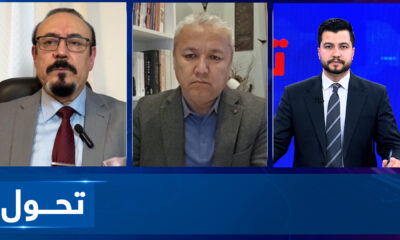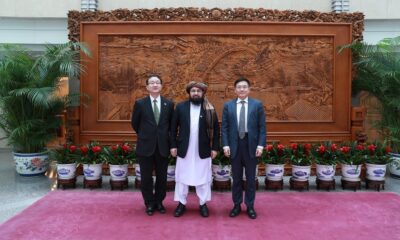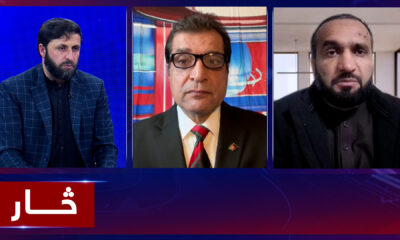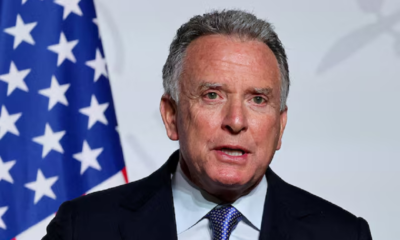Latest News
Washington struggling to isolate the Islamic Emirate
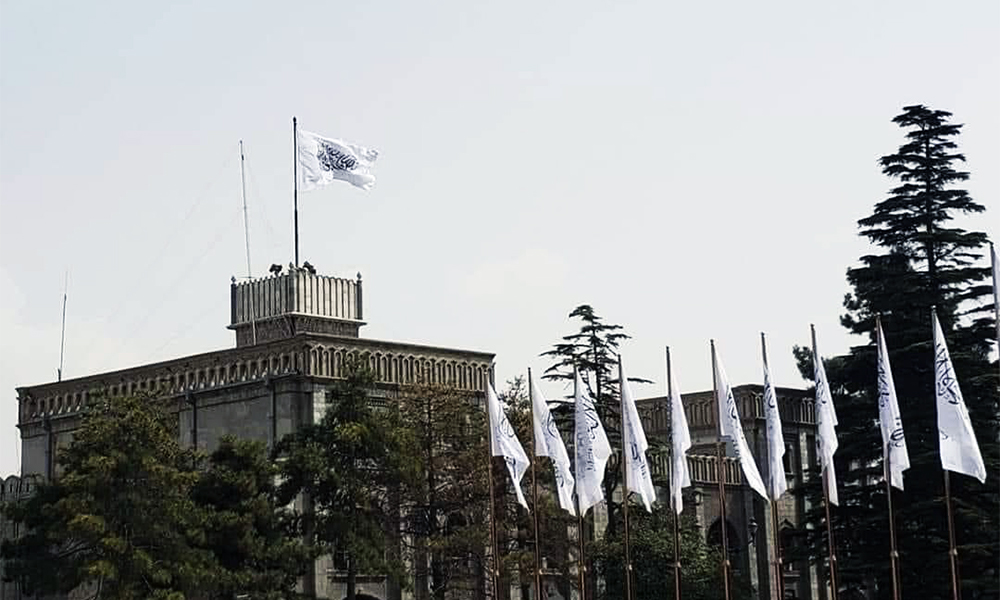
A growing number of governments, including China, are going against Washington’s approach and are not treating the Islamic Emirate as a pariah regime.
According to an article published in Foreign Affairs, the United States and its allies’ approach has been to isolate the Islamic Emirate of Afghanistan (IEA), by withholding diplomatic recognition and the benefits that usually come with normal diplomatic relations.
The approach that the United States and its allies and partners ultimately converged on was a commitment to continue engaging with the Afghan people—for example by providing substantial humanitarian aid—while withholding diplomatic recognition of the IEA and the benefits that usually come with normal diplomatic relations.
In fact, over the past two years, the United States has sought to build on this approach—not only by withholding its own recognition of the IEA but also by sustaining an international consensus on nonrecognition.
However, in the wake of concerted diplomatic efforts by the IEA to court neighboring countries and others in the region, several nations have been willing to accommodate the Islamic Emirate.
As Foreign Affairs reported, these states are among foreign governments that have embassies in Kabul and that host Afghan embassies overseas.
In January, several of these powers, including China, Iran, and Russia, even took part in a multilateral conference of their own hosted by the IEA.
Meanwhile, the IEA appears to be unmoved by global shaming, in particular when it comes to what they deem domestic affairs, such as the question of girls’ access to higher education and women’s right to work, Foreign Affairs reported.
Instead, Afghanistan’s leaders have portrayed international pressure as a violation of the country’s sovereignty, framing calls by Western leaders to uphold international norms as the latest episode in a long history of interference and intervention.
As the IEA has become more established in power, they have doubled down on a posture of resistance. As a result, rather than moderate their policies, they have pressed forward with further restrictions on women and social norms, Foreign Affairs reported.
The article stated that the erosion of the consensus on diplomatic isolation of the IEA raises important questions for Washington and its partners.
Nonrecognition is no longer a credible coercive tool, and if the United States seeks to influence the Islamic Emirate’s behavior, it must find other ways to achieve its desired aims.
Moreover, the Afghan case echoes similar situations Washington has faced with other difficult regimes, including its failure to prevent Arab countries from normalizing ties with Syrian leader Bashar al-Assad, despite crimes committed during the Syrian civil war, or to enforce a global consensus on the isolation of Russian President Vladimir Putin following Russia’s invasion of Ukraine.
Today, attempts by the United States to impose pariah status on regimes it doesn’t like are running up against serious limits.
However, analysts disagree on why Russia and China have not taken the final step of recognizing the IEA. One possibility is that both powers still seek more assurances from Kabul, especially concerning potential terrorist threats from (Daesh) Islamic State Khorasan and a number of other groups.
And as long as the United States actively promotes a nonrecognition strategy, Moscow and Beijing can reap many of the benefits of recognizing the IEA without having to formally buck the international consensus, Foreign Affairs reported.
“Thus, they can reassure the Taliban (IEA) they are on their side (for example by backing them in last December’s UN Security Council proceedings, defending Taliban positions on the recommendations of a recent UN assessment) while also withholding full recognition,” the article read.
Overall, the IEA is not being treated as a pariah regime – despite concerted US efforts to maintain an international consensus on nonrecognition. On the contrary, the region, led by China, is gradually normalizing with Kabul—and intends to continue doing so.
The IEA, for their part, are being validated by this expanding engagement. Their sense of confidence and a loss of patience with conditions-based, Western-backed engagement was evident in their refusal to attend the UN meeting of Afghan envoys in February.
The IEA was not invited to last year’s summit, so they rejected the new meeting as “ineffective and counterproductive.” Likely emboldened by Beijing treating them as a normal regime, the IEA responded to the UN’s invitation by insisting they be treated as the legitimate government of Afghanistan.
Foreign Affairs reported that with new sources of support, the IEA has less reason to submit to Western demands on human rights or inclusiveness in their government.
The failure of Washington’s existing IEA approach highlights the growing challenges to US diplomatic power around the world, Foreign Affairs stated.
Amid two major wars and intensifying strategic competition with China, the United States faces new difficulties in forging a collective international response to pressing global crises.
Meanwhile, China and regional actors are charting their own diplomatic paths, and regimes that the United States seeks to pressure can often find enough friends to defy Washington and maneuver for diplomatic gain, Foreign Affairs reported.
Latest News
IEA ambassador meets top Chinese diplomat for Asia
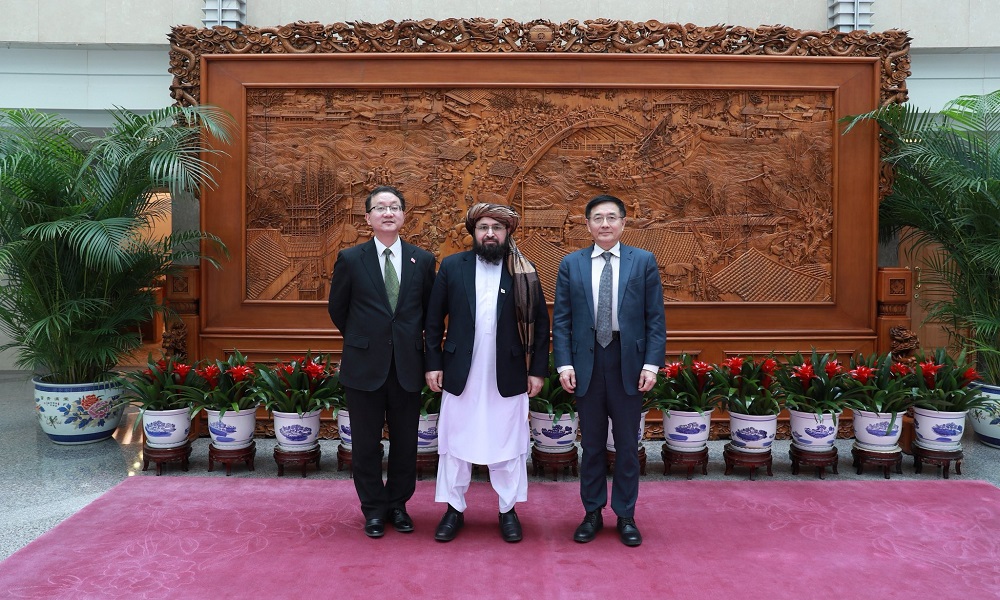
Bilal Karimi, the Ambassador of the Islamic Emirate in Beijing, met on Thursday with Liu Jinsong, head of the Asian Department of China’s Ministry of Foreign Affairs, and Yue Xiaoyong, China’s Special Representative for Afghanistan. The officials discussed political, economic, and commercial relations between the two countries, the activation of the Wakhan corridor, consular affairs, and other related issues.
According to a statement from the Embassy of Afghanistan in China, Karimi praised China’s positive stance toward Afghanistan and considered cooperation between the two countries necessary.
The statement added that Liu and Yue, while respecting Afghanistan’s independence, territorial integrity, and sovereignty, also emphasized the continuation of cooperation.
Latest News
Afghanistan facing deepening hunger crisis after US Aid Cuts: NYT reports

Afghanistan has plunged deeper into a humanitarian crisis following sharp cuts to U.S. aid, with child hunger at its worst level in 25 years and nearly 450 health centers forced to close, the New York Times reported.
According to the report, U.S. funding — which averaged nearly $1 billion a year after the Islamic Emirate takeover in 2021 — has largely evaporated following the dismantling of the U.S. Agency for International Development (USAID) under President Donald Trump.
The World Food Program (WFP) estimates that four million Afghan children are now at risk of dying from malnutrition.
The aid cuts have hit rural areas particularly hard, leaving families without access to basic health care. In Daikundi province, the closure of local clinics has been linked to preventable deaths during childbirth and rising child mortality.
Nationwide, more than 17 million Afghans — about 40 percent of the population — face acute food insecurity, with seven provinces nearing famine conditions, the report said.
The crisis has been compounded by mass deportations of Afghan refugees from Iran and Pakistan, deadly earthquakes, and ongoing drought. While other donors and Afghan authorities have tried to fill the gap, their efforts fall far short of previous U.S. assistance, the NYT reported.
Humanitarian groups warn the impact will be long-lasting. Researchers cited by the New York Times say sustained malnutrition could damage an entire generation, with consequences that cannot be reversed even if aid resumes in the future.
However, the spokesperson of the Islamic Emirate, Zabihullah Mujahid, considers the findings of this report to be inaccurate and said that the situation in Afghanistan is not as dire as it is portrayed, and that the country’s situation is moving toward improvement.
“In our view, this report is not correct. We have gone through difficult times and experienced problems such as a humanitarian crisis. At one point, we suffered very heavy casualties and our people faced many difficulties, but now the situation of most people is improving. The country’s economy is moving in a positive direction, to some extent job opportunities have been created for unemployed people, efforts are still ongoing, and Afghanistan’s economic resources have been revived,” said Mujahid.
Latest News
Uzbekistan, Kazakhstan discuss cooperation on Afghanistan
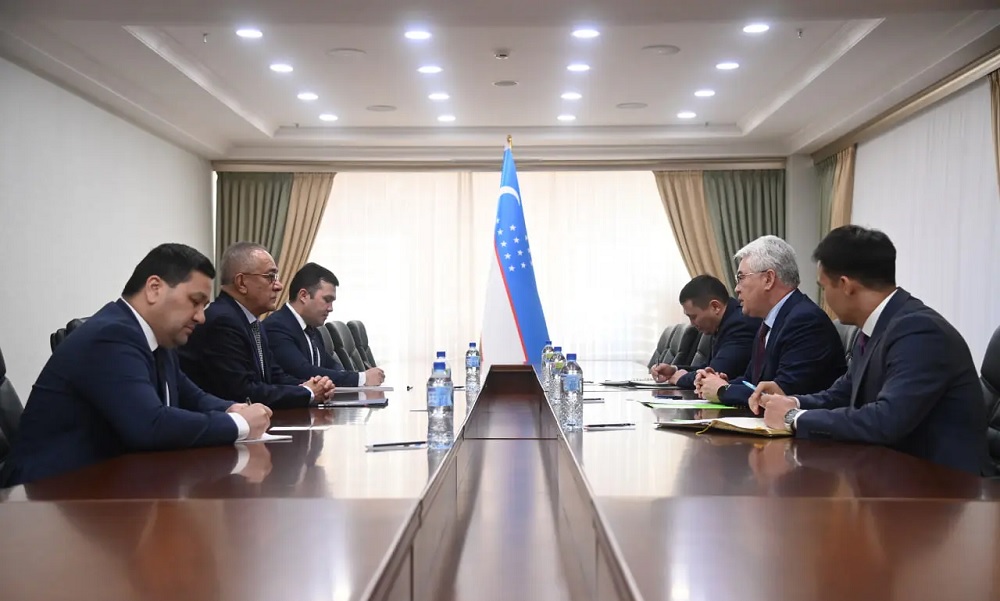
Ismatulla Irgashev, Special Representative of the President of Uzbekistan for Afghanistan, met on Tuesday with Beibut Atamkulov, Kazakhstan’s Ambassador to Uzbekistan, to discuss bilateral cooperation on Afghanistan.
The two sides highlighted their commitment to maintaining regular dialogue aimed at addressing the Afghan issue, according to a statement issued by Uzbekistan foreign ministry.
Atamkulov praised Uzbekistan’s efforts to help shape a unified regional position on Afghanistan.
The meeting also included discussions on involving Afghanistan in regional connectivity initiatives, particularly the implementation of the Trans-Afghan railway project.
Officials described the meeting as constructive and reaffirmed mutual interest in further developing practical cooperation between Tashkent and Astana.
-

 Sport5 days ago
Sport5 days agoAFC Futsal Asian Cup: Afghanistan to face Iran in crucial Group D clash
-

 Sport4 days ago
Sport4 days agoAFC Futsal Asian Cup 2026: Final eight confirmed
-

 Sport4 days ago
Sport4 days agoAfghanistan in new kit for T20 World Cup warm-up against Scotland
-

 Sport4 days ago
Sport4 days agoIran see off spirited Afghanistan to finish top of Group D
-

 Sport2 days ago
Sport2 days agoJapan trumps Afghanistan 6-0 in AFC Futsal Asian Cup quarter-final
-

 Sport2 days ago
Sport2 days agoHosts and heavyweights advance as AFC Futsal Asian Cup reaches semifinals
-
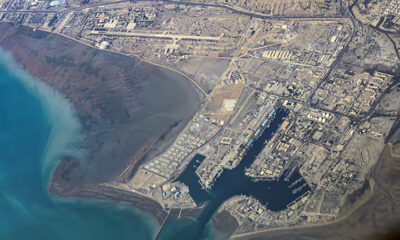
 Regional5 days ago
Regional5 days agoGas leak caused blast in Iran’s Bandar Abbas, Iranian media say
-

 International Sports3 days ago
International Sports3 days agoPakistan to boycott T20 World Cup group match against India


